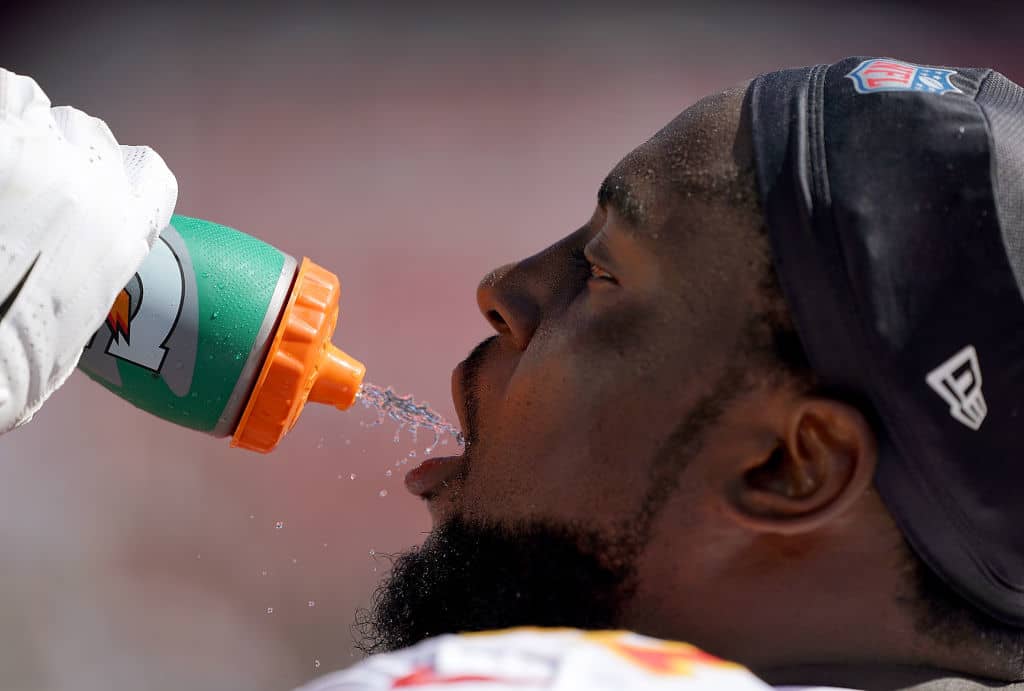We’ve partnered up with Gatorade to bring you the ultimate guide to training in the hot summer heat.
Despite the wet weather we’re currently experiencing, summer in Aus is fierce. Rising temperatures and long sunny afternoons suck the moisture out of the air and make you question whether going for that run is really the best thing to be doing.
Of course, if you’re determined to get your fitness in over summer, training in the heat is pretty much an inevitability.
As it so happens, training in hot conditions has actually been shown in numerous studies to have positive benefits on burning calories and increasing blood plasma levels which increases circulation and boots immunity.
But the practice is not without it’s dangers, too. Training in high heat can lead to a potentially lethal high body temperature and you run the risk of putting excess strain on yourself, causing you to be susceptible to illness and fatigue.
So, how to best tackle training hard in the heat? We’ve put together this handy guide to make the most out of the hot weather.
Start Low, Go Slow
Experts recommend that if you’re going to start training in the heat, you need to take it easy. The heat is an extra stressor on your body. When you’re working out, your lungs need to send extra blood to your heart and the muscles that you’re working. When you add heat to that, your skin gets extra blood too in order to facilitating sweating which is the body’s natural cooling mechanism. Overall, that means you’re going to have less oxygen available for your muscles, so your performance is going to decrease.
That’s fine though. Experts suggest 20-90 minute low impact or intensity routines in hot weather. If you’re lifting weights, drop the weight down considerably and increase repetitions. If you’re running, go at a much slower jog than you would normally as the sun and the humidity will very quickly start to sap your energy.
Hydrate
Sweating flushes out all of the electrolytes from your body which need replenishing. Electrolytes are the positively charged chemicals in your body like potassium, sodium, and chloride, that regulate muscle function and are vital for proper fitness and function. Training in the heat will rapidly deplete your natural stores of electrolytes as you can sweat up to three times as much in hot conditions as regular room temperature work outs.
Ultrarunning coach Jason Koop recommends drinking about a litre of electrolyte containing fluids, such as Gatorade, per hour spent working out in hot and humid conditions.
By maintaining these two principles as your guides for heat training, you cant go too wrong. As you progress, you’ll find that your body will adapt to working out in the heat, meaning you’ll have increased fitness overall and be much better able to handle hot conditions in general.







